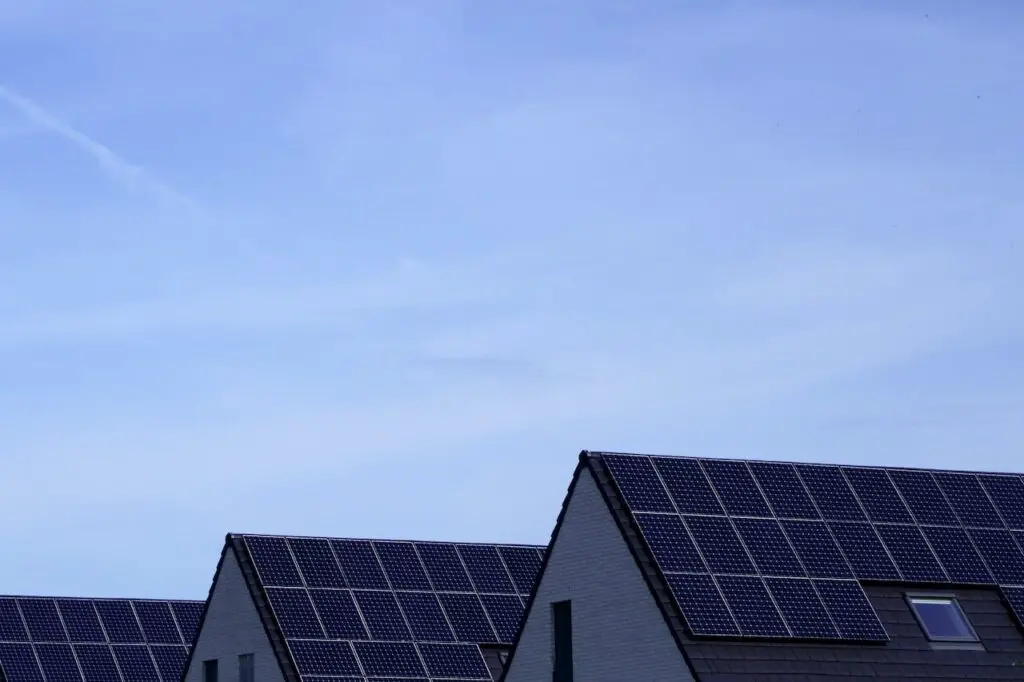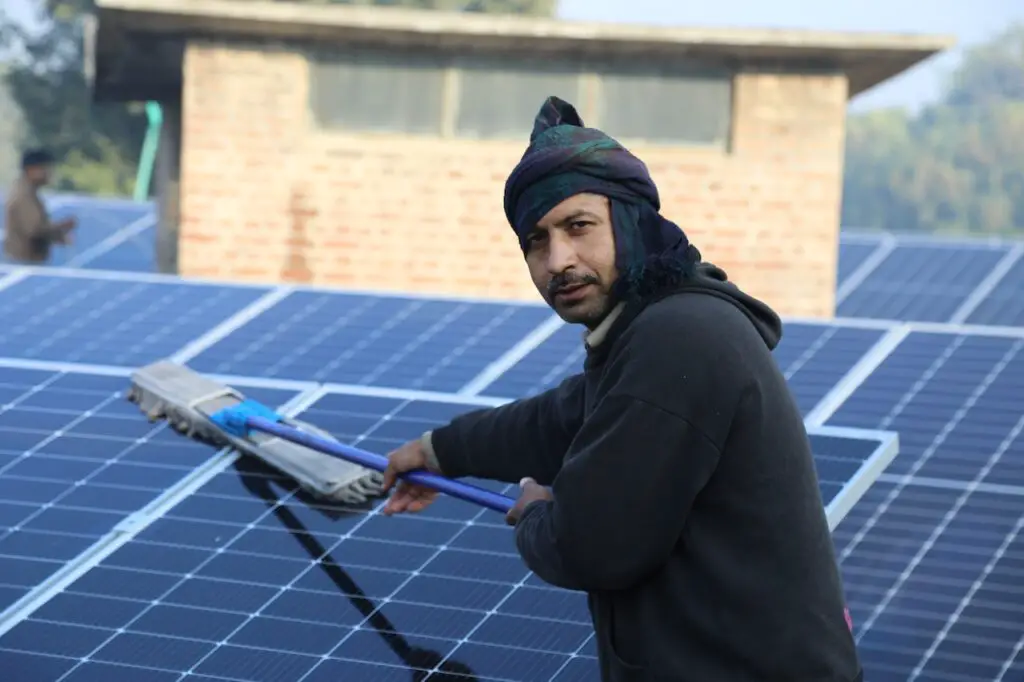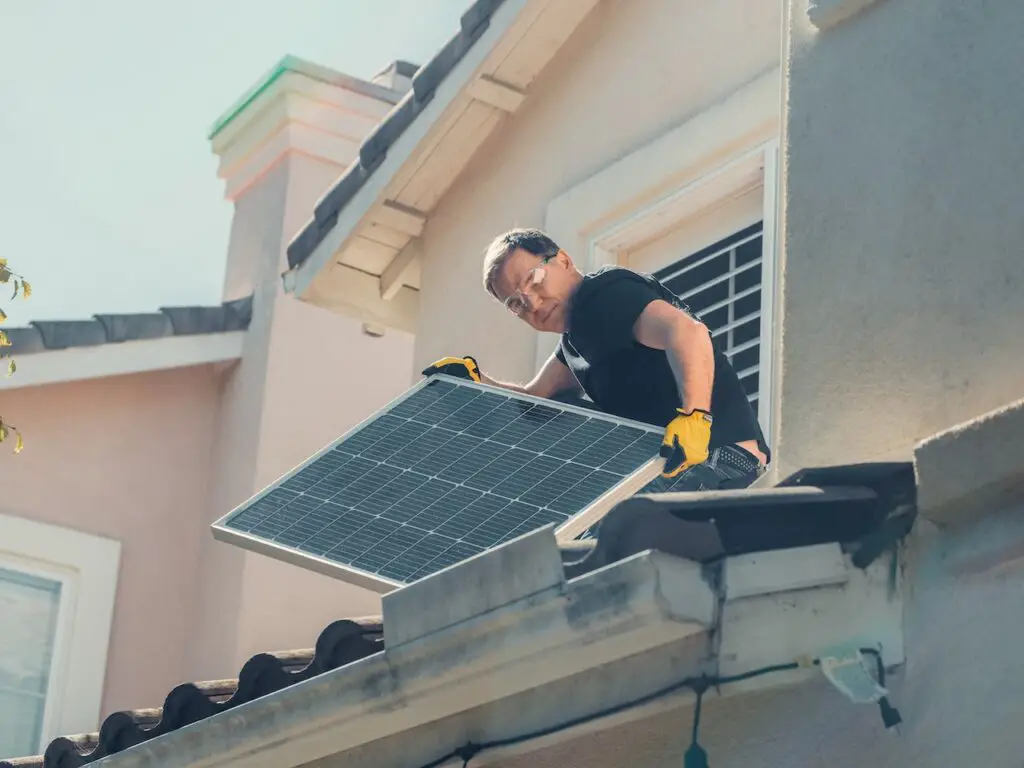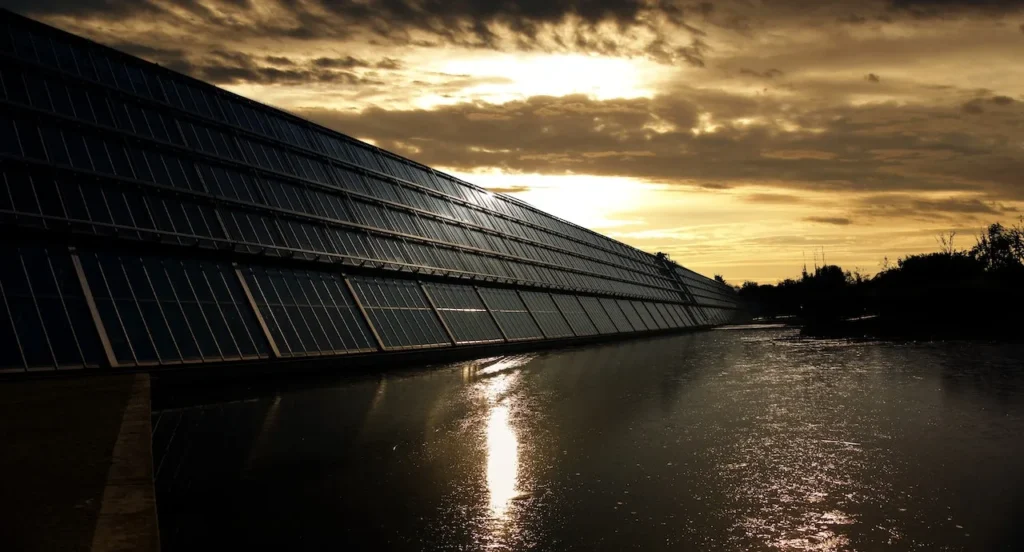If you have been considering installing solar panels, you may be wondering if you will still have to pay for electricity. While solar panels can help reduce your energy costs, they do not completely eliminate your electric bill. The size of your solar panel system and how much electricity it offsets is the largest factor in reducing your electricity bill.
According to EnergySage, ideally, you’ll be able to eliminate your electricity bill charges after going solar (and potentially even experience a negative electricity bill month after month). However, this may not be the case if you have an unfavorable net metering policy, or if your solar panel system isn’t large enough to produce all of the electricity you need. So, the answer to the question of whether you still pay for electricity if you have solar panels is not a straightforward one.
It’s important to understand how solar panels work and how they can impact your energy bills. In this article, we will explore the factors that determine whether you will still receive an electric bill if you have solar panels, and how you can maximize the benefits of your solar panel system. Whether you’re considering going solar or you already have solar panels installed, this article will provide you with valuable insights into the costs and benefits of solar energy.

How Solar Panels Work
Solar panels are a type of technology that converts sunlight into electricity that can be used to power homes and businesses. They are made up of photovoltaic (PV) cells, which are made of silicon and other materials that can absorb light and convert it into electrical energy.
When sunlight hits the solar panels, the PV cells absorb the energy and release electrons, which flow through wires and create an electrical current. This current is then sent to an inverter, which converts the DC (direct current) electricity into AC (alternating current) electricity that can be used to power homes and businesses.
During periods of high sunlight, solar panels can produce more electricity than is needed to power a home or business. This excess electricity can be sent back to the grid and used by others, and the owner of the solar panels can receive credits on their electricity bill.
It’s important to note that solar panels only work when exposed to sunlight, which means they produce less electricity on cloudy days or during the night. To ensure a steady supply of electricity, many solar panel systems are connected to the grid so that they can draw power when needed.
Net Metering
Net metering is a billing arrangement that allows homeowners with solar panels to receive credits for the excess energy they produce. When a solar panel system generates more electricity than the homeowner needs, the excess energy is sent back to the grid, and the homeowner receives credits for this energy. These credits can then be used to offset the cost of electricity when the solar panels are not producing enough energy.
Under net metering, the homeowner only pays for the “net” energy they use. This means that if a homeowner produces more energy than they consume over the course of a month, they will receive a credit on their electricity bill for the excess energy. If they consume more energy than they produce, they will be charged for the additional energy they use.
Net metering policies vary by state and utility company, so it’s important to check with your local utility to understand the specifics of your net metering arrangement. Some states have more favorable net metering policies than others, and some utilities may have caps on the amount of energy that can be credited or may charge fees for participation in net metering.
Overall, net metering is a key benefit of solar panel systems and can help homeowners save money on their electricity bills. By producing their own energy and receiving credits for excess production, homeowners can reduce their reliance on the grid and take control of their energy costs.
Calculating Electricity Costs with Solar Panels
When it comes to calculating electricity costs with solar panels, there are a few key factors to consider. First, it’s important to understand that while solar panels can significantly reduce your electricity bill, they do not completely eliminate it.
According to EnergySage, solar panel system costs, payback period, and utility electricity rates are equally important factors to consider when deciding whether it’s worth it to go solar. While the initial cost of installing solar panels can be high, the long-term savings can be significant.
One way to estimate your potential savings is to use an online solar calculator. These tools can help you determine how much electricity your solar panels are likely to generate, and how much you can expect to save on your electricity bill each month.
It’s also important to keep in mind that your electricity usage habits can impact your savings. For example, if you use more electricity during peak hours, you may not see as much savings as someone who primarily uses electricity during off-peak hours.
Finally, it’s worth noting that while solar panels can reduce your electricity costs, they do not completely eliminate your connection to the grid. As a result, you may still see some charges on your electricity bill each month, such as basic fees and charges for being connected to the energy grid.
Factors That Affect Solar Panel Electricity Production
While solar panels can significantly reduce your electricity bill, the amount of electricity your solar panels produce can be affected by several factors. Understanding these factors can help you optimize your solar panel system’s energy production and save even more on your electricity bill.
1. Tilt and Orientation: The angle and direction of your solar panels can significantly affect their electricity production. Solar panels should be installed facing south in the Northern Hemisphere and north in the Southern Hemisphere to receive maximum sunlight. The tilt angle should also be optimized based on your latitude to ensure maximum energy production.
2. Climate: Climate can also affect the electricity production of your solar panels. Areas with more sunlight and fewer cloudy days will produce more electricity than areas with less sunlight and more cloudy days. However, solar panels can still produce electricity on cloudy days, although at a lower rate.
3. Shade: Shade from trees, buildings, or other obstructions can significantly reduce the electricity production of your solar panels. It’s important to ensure that your solar panels are installed in an area with minimal shade to optimize their energy production.
4. Panel Quality: The quality of your solar panels can also affect their electricity production. Higher quality panels with better efficiency ratings and lower degradation rates will produce more electricity over their lifetime than lower quality panels.
By considering these factors when installing your solar panel system, you can optimize its energy production and save even more on your electricity bill. It’s also important to regularly maintain and clean your solar panels to ensure maximum energy production.
Additional Costs of Solar Panels
While solar panels are a great way to save money on your electricity bill, there are some additional costs associated with installing and maintaining them. Here are some of the most common costs to keep in mind:
- Installation costs: The cost of installing solar panels can vary depending on the size of your system and the complexity of the installation. On average, homeowners can expect to pay between $15,000 and $25,000 for a complete solar panel system installation.
- Maintenance costs: While solar panels require very little maintenance, they do need to be cleaned periodically to ensure optimal performance. You may also need to replace some parts of your system over time, such as the inverter or the batteries. These costs can add up over the lifespan of your system.
- Battery costs: If you want to store the energy generated by your solar panels for use at night or during power outages, you’ll need to invest in a battery system. These can cost several thousand dollars, depending on the size and capacity of the batteries.
- Grid connection fees: In some areas, you may need to pay fees to connect your solar panel system to the grid. These fees can vary depending on your location and utility provider.
It’s important to consider these additional costs when deciding whether to install solar panels. While the long-term savings can be significant, the upfront costs can be substantial. However, many homeowners find that the benefits of solar panels outweigh the costs in the long run.
Conclusion
So, do you still pay for electricity if you have solar panels? The answer is yes, but it depends on several factors.
Firstly, the size of your solar panel system and how much electricity it offsets is the largest factor in reducing your electricity bill. By producing more of your own electricity, you are offsetting the amount of electricity you will have to pay for overall.
Secondly, the net metering policy in your state can also affect how much you pay for electricity. Some states have policies that allow homeowners to receive credits for excess electricity generated by their solar panels, which can be used to offset their electricity bills.
Thirdly, your electricity usage habits also play a role in determining how much you pay for electricity. If you use more electricity than your solar panels can generate, you will still need to draw electricity from the grid and pay for it accordingly.
Overall, while solar panels can significantly reduce your electricity bill, they do not completely eliminate it. However, with careful planning and energy usage management, you can reduce your reliance on the grid and save money on your electricity bills.




